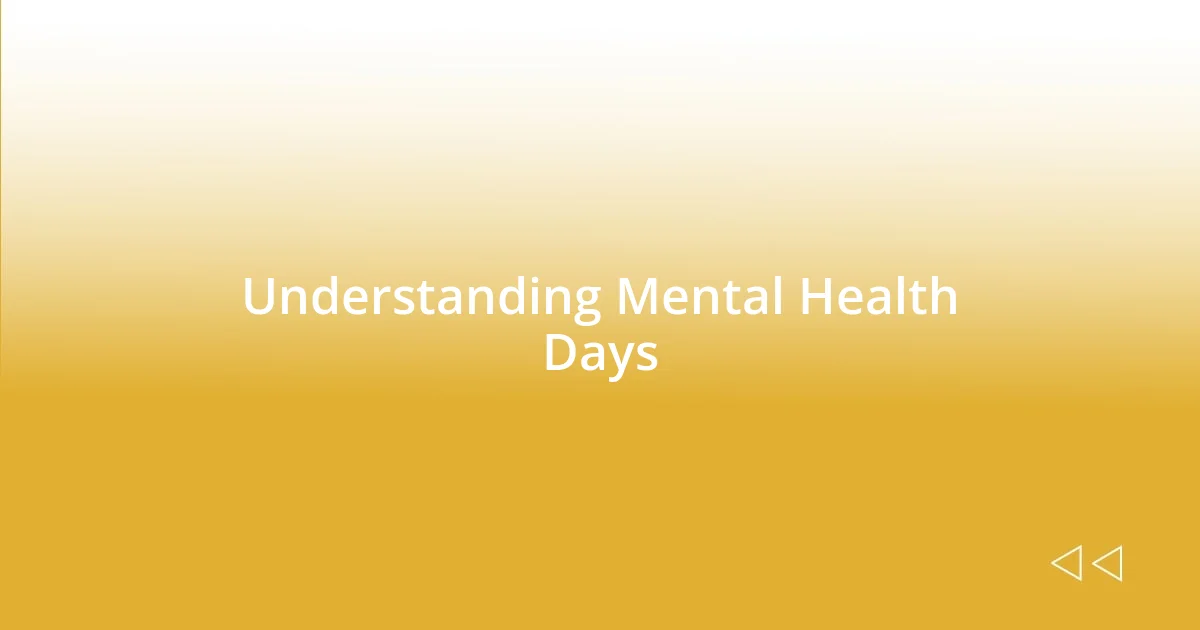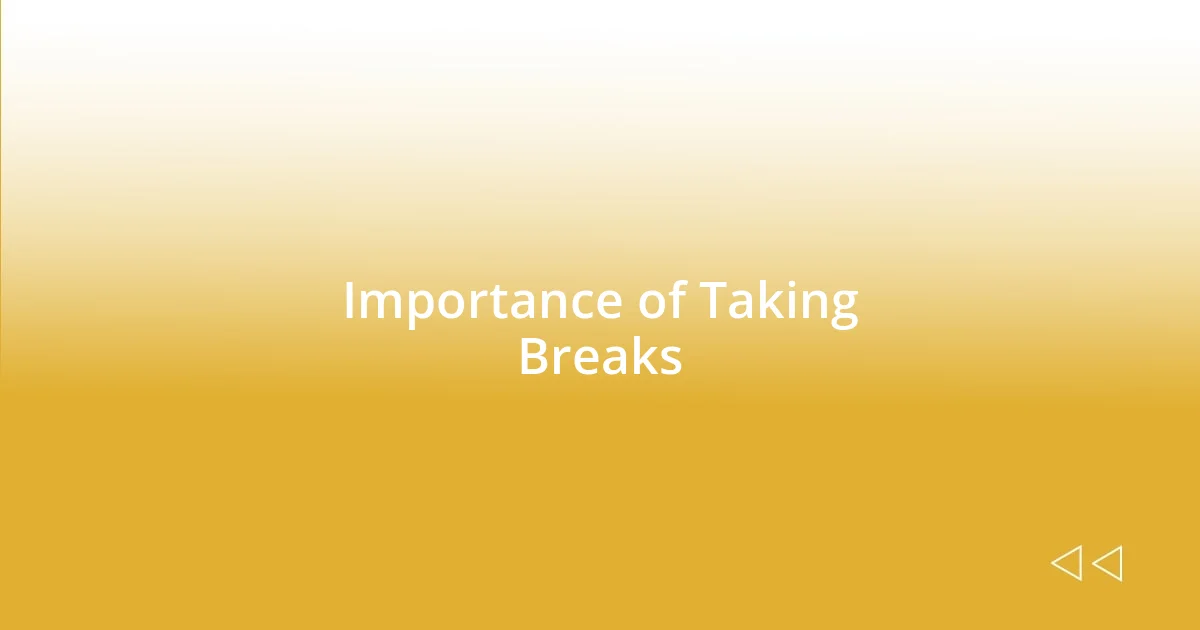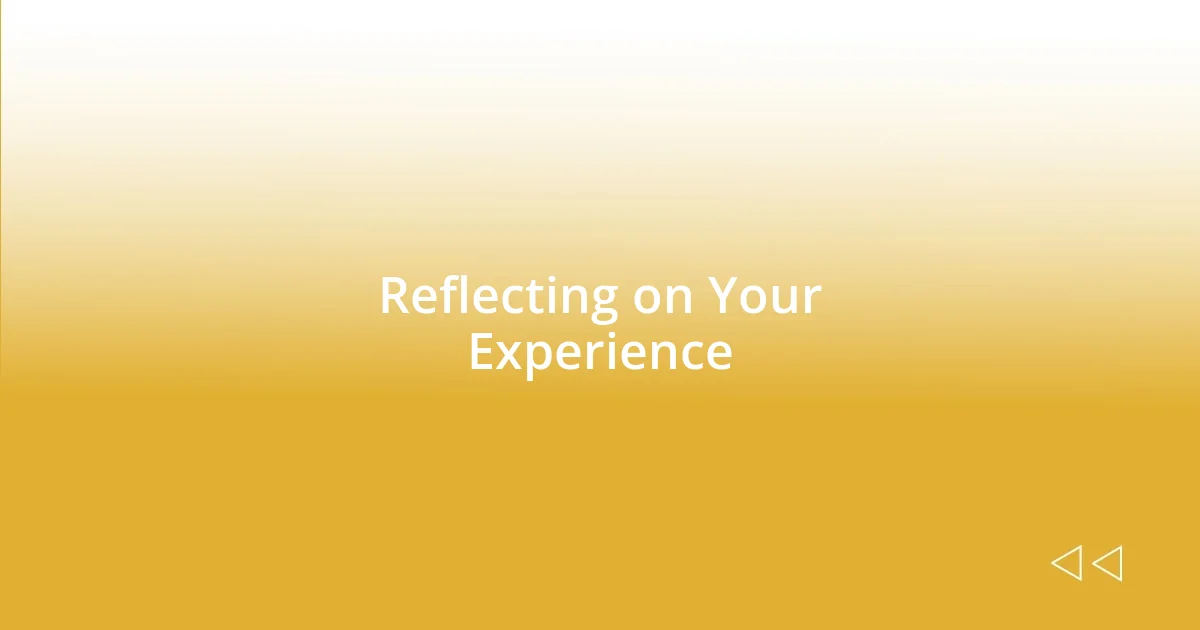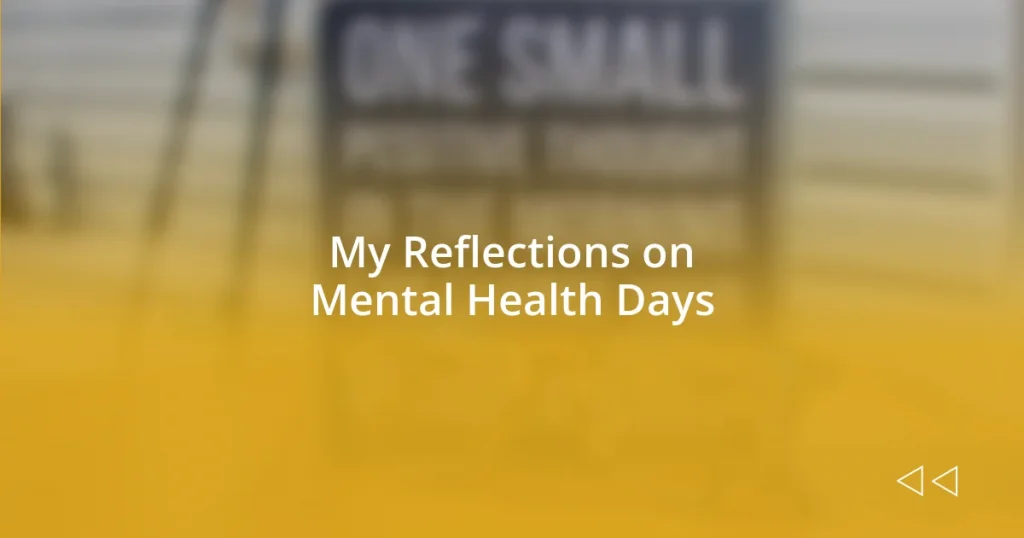Key takeaways:
- Mental health days are essential for self-care, leading to improved clarity and focus upon return.
- Taking regular breaks enhances creativity, refreshes the mind, and helps prevent burnout.
- Reflecting on experiences and emotions is crucial for understanding stress and setting intentions for future well-being.

Understanding Mental Health Days
Mental health days are more than just a break from work or school; they’re a crucial time for self-care and rejuvenation. I remember a particularly overwhelming week when deadlines loomed large, and I felt like I was on the verge of burnout. Taking that day to reset my mind was not just refreshing; it allowed me to return clearer and more focused, an experience I think many can relate to.
It’s fascinating to consider how society’s perception of mental health days is evolving. Are we finally recognizing that mental health is just as important as physical health? While some might still question the legitimacy of taking a day off for mental well-being, I’ve found it to be a game-changer. When I paused to prioritize my mental health, the clarity I gained helped me see not just my work, but also my personal priorities in a new light.
The emotional weight behind taking a mental health day is often underestimated. I’ve had days when the thought of facing the world felt too heavy to bear, and simply staying home became an act of self-love. In those moments, I learned that it’s okay to set boundaries and honor what my mind and body truly needed. After all, isn’t it better to take a step back than to push through and risk further emotional strain?

Importance of Taking Breaks
Taking breaks is essential for mental health, and I’ll tell you why from my own experiences. I’ve noticed that when I allow myself to step away, even for a short period, I come back with a clearer mind and renewed energy. Once, I spent a Saturday afternoon just reading a novel instead of tending to my ever-growing to-do list. That simple act of diving into a story transported me away from my worries and left me feeling refreshed.
Another crucial point is that breaks foster creativity, something I’ve seen firsthand. There were times when I stared at my screen, waiting for inspiration, but all I felt was frustration. However, after taking fifteen minutes to walk outside and soak in the nature around me, ideas flowed like water. It’s fascinating how our minds can become stuck, but a little breathing room often opens the floodgates.
Finally, in my experience, taking regular breaks helps prevent burnout. I learned this the hard way when I pushed through weeks of intense work without rest. I became irritable and lost my passion for projects I once enjoyed. Remembering that no one can run on empty, I started incorporating small breaks during my day. It was a simple shift, but it made a world of difference in maintaining my emotional balance and motivation.
| Benefits of Taking Breaks | Impact on Mental Health |
|---|---|
| Refreshes Mind | Improves clarity and focus |
| Boosts Creativity | Encourages new ideas and perspectives |
| Prevents Burnout | Maintains emotional stability and motivation |

Reflecting on Your Experience
Reflecting on my experiences, I often find that taking a moment to truly assess how I feel can be enlightening. There was a day after a particularly demanding project when I sat quietly, allowing my thoughts to roam. It dawned on me that acknowledging my feelings was the first step to understanding the toll that stress had taken on my mental health.
Have you ever noticed how simply writing down your thoughts can clarify your emotions? I remember scribbling in a journal during a quiet evening when anxiety was making it hard to sleep. The act of reflecting on what was bothering me allowed me to identify the root causes of my stress. It was as if putting pen to paper released some of that pressure, making the overwhelming fog a little clearer.
I’ve learned that reflection isn’t just about looking back; it’s about setting intentions for the future. After a mental health day, I would often take time to think about what changes I wanted to make. Through this practice, I’ve realized the importance of being proactive rather than reactive. How can we expect to thrive if we don’t pause to align our actions with our emotional needs? It’s in those quiet moments of reflection that I can truly chart a healthier, more fulfilling path forward.















